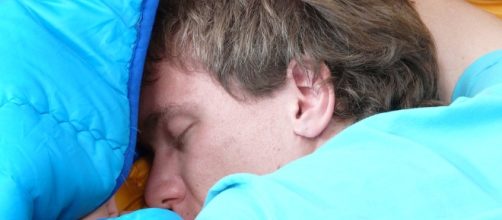Lack Of Sleep or sleep deprivation has recently become one of the biggest health crises in the world. Even though having insufficient sleep appears to be a minor issue that can be easily remedied by a cup of coffee, experts said the problem is not actually simple anymore since millions are already affected by sleeplessness and chronic sleep disorders.
Since a good night's sleep is needed for the proper functioning of the immune system and body metabolism, experts warned that inadequate sleep is associated with several chronic illnesses such as obesity, hypertension, diabetes, cancer and Mental Health Problems.
Sleeplessness is also linked to car accidents and occupational blunders.
New: The effects of improving sleep on mental health (OASIS): a randomised controlled trial with mediation analysis. https://t.co/swHUxRjNeY pic.twitter.com/Owy3tTJUX8
— Lancet Psychiatry (@TheLancetPsych) September 6, 2017
New study
Previous findings found that people struggling with mental health issues experience insomnia or have a difficulty in sleeping at night. A new study conducted by the University of Oxford researchers, however, suggested an opposite theory in which those who don’t get enough sleep are at high risk of suffering mental health problems such as depression, anxiety, paranoia and nightmares, Daily Mail reported.
The publication further explained that lack of sleep could “damage” one’s mental health by denying the brain of “valuable housekeeping time,” which helps in processing new memories and managing those old ones. As a result, those individuals who are having troubles sleeping become “stuck” on having “repetitive negative and mistrustful thoughts.”
"Research indicating the treatment of disrupted sleep requires a higher priority in mental health...is accumulating" https://t.co/DDBISbivw6
— Lancet Psychiatry (@TheLancetPsych) September 7, 2017
No longer a symptom
For individuals suffering mental health issues, sleep problems are often considered as a symptom. But according to lead author and University of Oxford clinical psychology professor Daniel Freeman, their findings suggested that insomnia could actually be a “contributory cause” of emotional and psychological problems.
The study, which was published in the journal The Lancet Psychiatry, also found that Cognitive Behavioral Therapy (CBT) is a useful treatment for those who suffered depression and anxiety. But the researchers stressed that the recent study had limitations and more research is needed to determine the effects of CBT, Live Science noted.
"The treatment of disrupted sleep might require a higher priority in mental health provision." https://t.co/DDBISb0UEy
— Lancet Psychiatry (@TheLancetPsych) September 7, 2017
Online CBT
In the study, participants were offered an online cognitive behavioral therapy course, which comprised of six 20-minute sessions that aimed to tackle insomnia. Despite the limitations of the research, Freeman stressed the findings presented a “very clear” pattern that the connection between sleep and mental health was “two-way,” as per The Guardian.
Freeman added that the insomnia-focused CBT programs could help individuals who have trouble sleeping. He also stressed that insomnia can be treated and since there’s only a “little social stigma” when it comes to sleep problems, treatment centered on these issues could provide young people a platform to discuss mental health problems.


